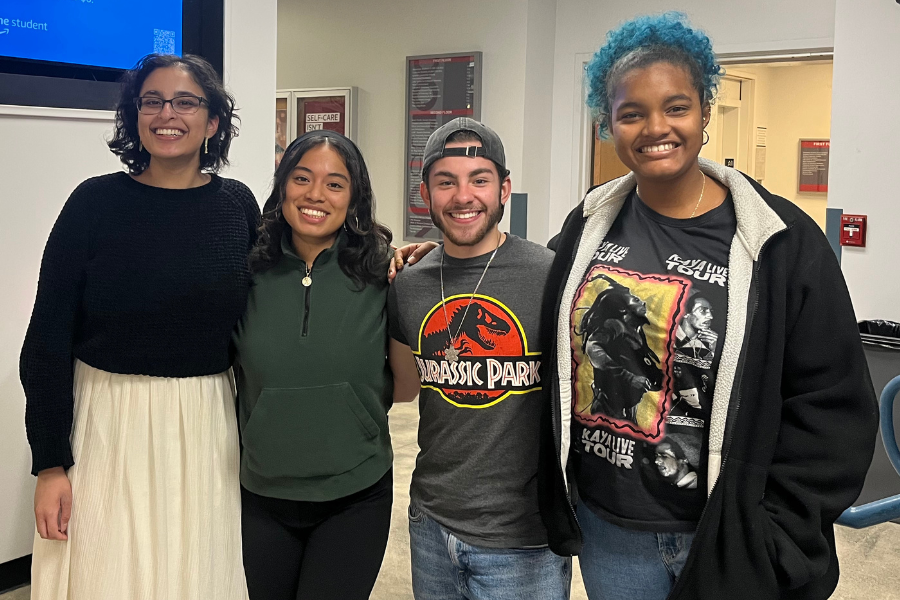
Mateo-Luis Planas, sophomore political science major, has been advocating for underrepresented communities since he was in high school. As a queer person of color, giving a voice to the marginalized wasn’t just a desire, it was a necessity. That’s why he and three Honors Program classmates founded the Equity Project for the LMU Honors Program.
“This student-run, grassroots organization is meant to address equity issues that we have accepted as normal in higher education that really aren’t,” said Planas. “We have created spaces that are historically white spaces and then diversified them and expect them to work with diverse communities, but these institutions weren’t made for us.”
Planas and his classmates Lisette Gonzalez, Noopur Barve, and Lauren Campbell founded the Equity Project in 2022 in response to concerns raised by students about the recruitment process for the University Honors Program. Their intentions were to address the existing equity problems and pave the way for future Honors Program students to have a more inclusive experience.
“We realize that we all come from different backgrounds and places, but the one thing we agree on is that diversity is what makes the (Honors) program what it is,” said Planas.
In recent years the University Honors Program has been working to recruit a more diverse class of students while simultaneously addressing equity and retention issues. The work is often student-led and supported by Honors Program faculty and directors. Planas was encouraged by former Honors Director Trevor Zink to take hold of the power that students have as stakeholders in the program, and call out the changes that must be made as the higher education landscape and our societies continue to change.
Current Honors Director Jeffrey Wilson said, “Six years ago, only 33 percent of our incoming Honors cohort were non-white. Today, that number stands at 70 percent. I am working actively with the Equity Project, other students, Honors faculty, and Admission to make sure we maintain and increase the diversity of the program going forward by how we recruit Honors students.”
At the same time, Wilson acknowledges that bringing in a diverse class is not the end of the process. “We still have important work to do to make the University Honors Program a community where every student, regardless of background, has a deep sense of belonging. The efforts of the Equity Project are essential to promoting a culture of inclusiveness in Honors, even — and especially — when they tell us uncomfortable truths.” Wilson emphasizes that both student leadership and faculty leadership are vital to the success of the program.
Planas continues, “Honors is a curious space. That’s what they keep telling us, ‘It’s a curious space.’ So let’s be curious about how we can fix these issues. I’m so curious as to why, in the last 65 years, no one said anything about it when in my first week of being here I already knew that we had our work cut out for us. There is an overwhelming amount of students who are willing to participate and who are willing to help because they know it’s important.”
“My hopes for the future of the Equity Project are that it will continue to exist after my co-organizers and myself graduate and that we pass and implement a code of conduct,” said Gonzalez. “While this work has not been easy, it’s important to remember that I am helping contribute to something much bigger than myself or my current peers, spaces and waves made by the Equity Project make it easier for the people after us to create change, which is the goal.”
At the recent AJCU Honors Conference held on LMU’s campus this spring, members of the Equity Project gave a presentation about the “who” of the Honors Program, and how to empower the diverse students in honors programs, which prompted students from other AJCU institutions to ask how they could implement an Equity Project on their own campuses. Planas’ dream is that LMU’s Equity Project serves as a blueprint for other honors programs across the U.S.
“Maybe we are pioneering something,” said Planas. “Just starting the conversation is enough. If other schools are talking about how to implement something like LMU’s Equity Project, I’m good with that.”



